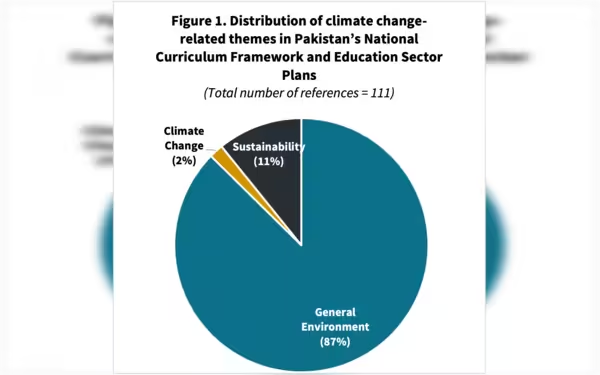Thursday, July 4, 2024 06:37 PM
Pakistan's Ministry of Climate Change Addresses Education Challenges
- Extreme weather disrupts school schedules, impacting students' learning.
- Heatwaves pose health risks for students, requiring immediate actions.
- Floods in Pakistan lead to damaged schools and disrupted education for children.
 Image Credits: Education Profiles
Image Credits: Education ProfilesThe Ministry of Climate Change in Pakistan addresses challenges in education sector due to climate change impacts. Extreme weather disrupts school schedules, posing health risks for students. Floods lead to damaged schools, affecting millions of children's education.
Education is crucial in preparing future generations to combat environmental issues like climate change. However, in countries such as Pakistan, the education sector itself is facing challenges due to the impacts of climate change.
Extreme weather events, like dense fog in winter and scorching heat in summer, disrupt school schedules, leading to closures and affecting students' learning. Last year, cities like Lahore, Islamabad, and Rawalpindi experienced school closures due to adverse weather conditions.
Rising temperatures pose health risks for students, with heat-related illnesses and dehydration becoming more common. The Ministry of Climate Change and Environmental Coordination in Pakistan has highlighted the increasing intensity and frequency of heatwaves, with recent records showing some of the highest temperatures globally.
To combat the impacts of heatwaves, collaborative efforts at various levels of government are being implemented. Measures such as early warnings, standard operating procedures, and cooling centers with water and ventilation systems are being put in place. Public awareness campaigns, tree plantations, and the use of reflective materials are also being promoted to reduce heat stress.
The government is dedicated to enhancing environmental sustainability and resilience to climate change. Initiatives are underway to address environmental degradation and strengthen the nation's ability to withstand climate-related challenges, particularly floods and heatwaves.
Climate change not only affects education but also poses health risks to children. Extreme weather conditions can disrupt schooling, making students uncomfortable and unable to focus. Strategies to prioritize students' health and well-being, regardless of weather conditions, are essential.
Heat-related illnesses, such as high body temperature and dizziness, are common during extreme heat. Immediate actions like moving children indoors or to shaded areas and applying cool water are advised. Seeking medical help is crucial if symptoms worsen.
Climate change profoundly impacts children's health, as seen in events like devastating floods. In 2022, over 33 million people were affected by floods in Pakistan, leading to damaged schools and disrupted education for millions of children. The floods also resulted in a surge of waterborne diseases, affecting vulnerable populations.
Efforts must be made to protect children from the adverse impacts of climate change, ensuring their resilience and readiness to face the growing threats posed by environmental challenges.
It is imperative to recognize the intersection of climate change and education in Pakistan. By implementing proactive measures and raising awareness, we can safeguard the well-being of students and build a more sustainable future for all. Together, we can work towards a resilient and environmentally conscious society that prioritizes the health and education of our children.













